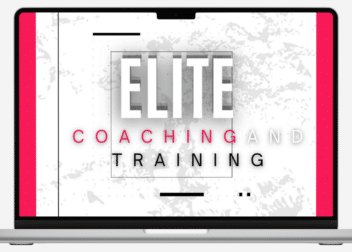Nepotism in Sports: 4 Negative Effects
- 11/21/2023
- Sports Pyschology
- 4 mins read
Table of Contents
ToggleNavigating the Playing Field: Nepotism in Sports: 4 Negative Effects
High school sports are meant to be a platform for young athletes to showcase their talent, passion, and hard work. However, the presence of nepotism can cast a shadow over this experience, creating an uneven playing field and affecting athletes both emotionally and physically. In this blog post, we’ll explore the detrimental effects of nepotism in sports (high school ) and delve into eight practical ways to handle and mitigate its impact.
Nepotism in Sports
Understanding the Damage
Nepotism – the practice of favoring family members or friends in various aspects of life, can be particularly harmful in the context of high school sports. When athletes perceive unfair treatment due to nepotism, it can lead to a range of negative consequences:
- Diminished Motivation and Confidence:
Athletes who feel their hard work and dedication are overlooked due to nepotism may experience a decline in motivation and confidence. This can hinder their performance on the field and affect their overall enjoyment of the sport.
2. Erosion of Team Morale:
Nepotism in sports can create a divisive atmosphere within a team, as players may sense favoritism towards certain individuals. This erosion of team morale can hinder collaboration and unity, essential elements for success in any sport.
3. Stunted Personal Growth:
Sports offer a unique opportunity for personal growth and skill development. When nepotism is prevalent, athletes may find their growth stunted as opportunities are unfairly distributed, limiting their potential both as players and individuals.
4. Negative Impact on Mental Health:
Experiencing nepotism can take a toll on an athlete’s mental health. Feelings of frustration, inadequacy, and resentment can lead to stress and anxiety, potentially affecting an athlete’s overall well-being.
Handling Nepotism in Sports
Fortunately, there are practical and constructive ways to address and handle nepotism in high school sports. By fostering a positive and inclusive environment, both athletes and coaches can contribute to a fair and rewarding experience for everyone involved.
- Open Communication Channels:
Establishing open lines of communication is crucial in addressing nepotism. Coaches should create a platform where athletes feel comfortable expressing their concerns without fear of reprisal. Regular team meetings and one-on-one check-ins can help foster an environment of trust.
- Establish Clear Selection Criteria:
To counteract perceptions of favoritism, coaches should establish and communicate transparent selection criteria for team positions and playing time. This ensures that athletes understand how decisions are made and what factors contribute to team selections.
Nepotism in Sports
- Encourage Team Building Activities:
Foster a sense of unity and camaraderie within the team by organizing team-building activities. These activities can help break down barriers and strengthen relationships among athletes, minimizing the impact of nepotism on team dynamics.
- Promote Fair Play:
Coaches should emphasize the importance of fair play and sportsmanship. Encourage athletes to support each other, regardless of personal relationships, and discourage any behavior that may contribute to a perception of nepotism in sports.
- Implement a Feedback System:
Establish a structured feedback system where athletes can provide input on team dynamics and their experiences. This can help coaches gain insights into potential issues related to nepotism and take proactive steps to address them.
- Provide Skill Development Opportunities:
To ensure a level playing field, coaches should actively seek opportunities for all athletes to develop their skills. This might include additional training sessions, workshops, or mentorship programs that focus on individual growth and improvement.
Nepotism in Sports
- Involve Parents and Guardians:
Engage with parents and guardians to create a supportive network around the team. By involving parents in a positive way, coaches can build a stronger community that prioritizes the overall well-being and fair treatment of all athletes.
- Establish a Grievance Procedure:
Coaches and school administrators should work together to create a clear grievance procedure for athletes who feel they are experiencing unfair treatment due to nepotism. This formal process can provide an avenue for resolution and ensure that concerns are addressed appropriately.
Conclusion
🚨 Nepotism in sports is a silent team killer! 🚨 It breeds resentment, crushes morale, and creates a toxic atmosphere where favoritism replaces fairness. Every athlete deserves a shot based on talent, dedication, and hard work—not family ties! Sports should ignite passion, teamwork, and growth, not frustration and division.
✅ Coaches and administrators must commit to fair play by setting clear criteria, fostering open communication, and prioritizing team unity. Only then can we build a culture where every athlete has the opportunity to rise and succeed.
✅ Don’t let nepotism steal the spirit of the game! 🔥 Demand fairness. Demand accountability. Because every player deserves a fair chance to shine! 💪🏆
🔥Through these efforts, we can ensure that high school sports remain a place where talent, dedication, and hard work are the true determinants of success.
Thank you for visiting and reading our blog post ….🙏🏿
🚨If you would like to help your young athlete gain speed and explosiveness, visit the link 🚨



